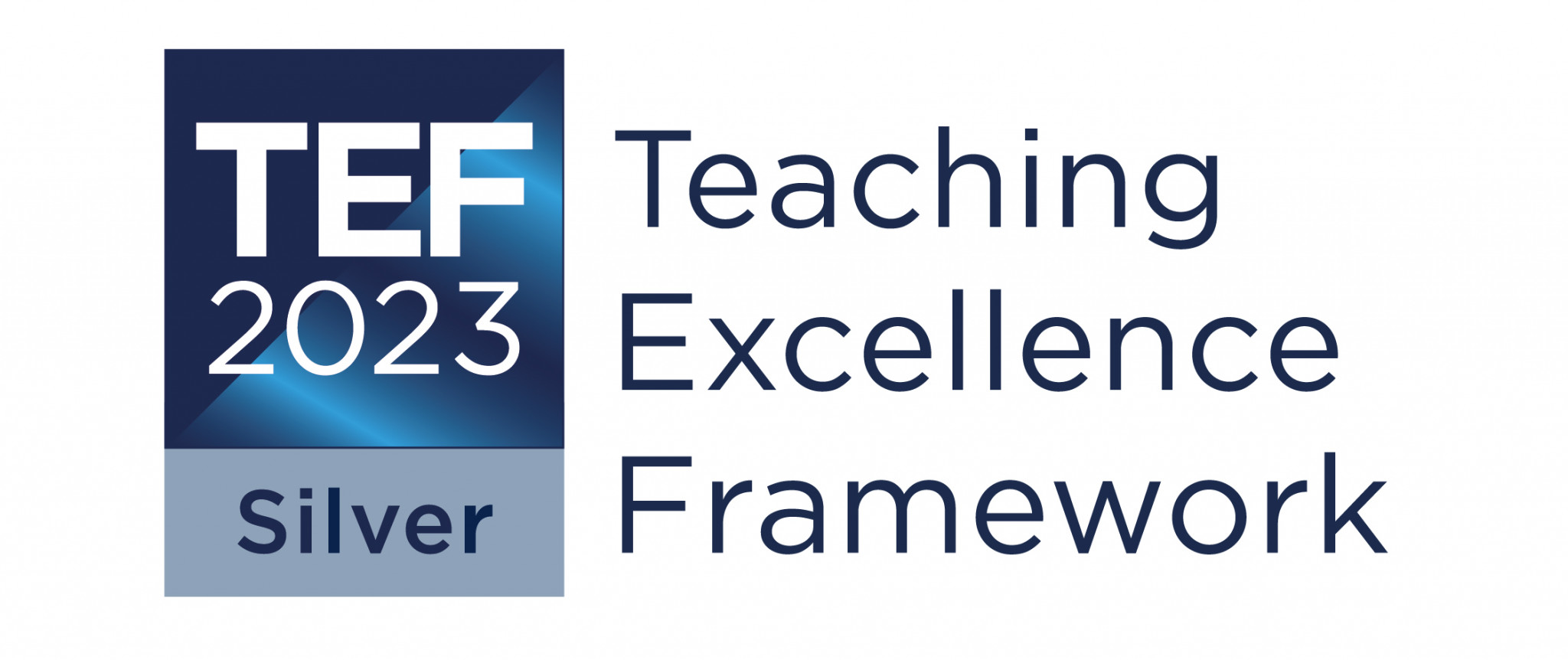Dr Ali Eyden, Dean of Learning and Teaching, reflects on the preparation and approach for the Teaching Excellence Framework submission.
‘SILVER SILVER SILVER! We did it!’. That’s the message I sent to our Deputy Vice-Chancellor, Professor Alison Honour on 8 August after logging into the TEF portal and seeing the outcome of our submission.
We had been preparing for the TEF submission for many months; leading the team in gathering and analysing our data, our stories, and constructing our narrative, and in finally seeing the outcome there on screen I felt a mixture of excitement and relief. Excitement because I was so keen to share our success with my colleagues and our students, and relief because I knew how important this outcome would be to us all.
Back in October 2022, we began planning our approach; we established a core writing group, a broader steering group, and set the dates for key governance meetings, starting 10 November and ending on the submission day of 24 January. This was a narrow time frame to capture and evidence the quality and effectiveness of learning and teaching at CCCU, but colleagues responded admirably, going above and beyond, because we all knew we had a really good story to tell.
Using the TEF dashboard and our own intelligence, we undertook further analysis to ensure we had a really firm handle on what the data was telling us about ourselves. We then set about gathering the stories behind the data and worked hard to speak to all our stakeholders to support the narrative we were forming. We looked at subjects that were below and above benchmark and asked our Heads of School, Directors of Service, and others to describe the activities and interventions that were in place to either improve the data, or that had already shown impact. We asked them to describe their rationale and approach, the impact, and the evidence for this. We very quickly built up a collection of amazing stories that we used as the basis for our submission. This has also resulted in a treasure trove of outstanding and innovative practice that didn’t make it into our submission, but our renewed awareness of this practice gives us opportunities to showcase and celebrate this both internally and externally through our November Learning and Teaching Conference and other events and activities.
The story-gathering approach worked really well for us as it enabled us to demonstrate ‘robust honesty’ around where we are as a University (one of the many brilliant pieces of feedback we received). This would not have been possible without the teamwork and collaboration that wrapped around the data and evidence. The core writing group were incredible, using the stories and the data, writing and editing, editing again as we honed down to our 30 pages. Colleagues across the University were equally incredible in providing us with those stories, answering queries, fact-checking, proofreading, formatting documents, steering us where needed, approving our final submission, and being very supportive to those of us who only talked about the TEF for three months. Working with our Students’ Union was a real highlight; they were members of the core writing group, but we made sure we maintained independence from each other’s submissions.
So, on reflection, our approach worked incredibly well for us. We mastered and understood our data, and we backed this up with tangible and demonstrable evidence of the outstanding practice it reflects. The submission process has really shown me the power of effective collaboration, it was a genuine pleasure to lead the work and I’m hugely proud of what we achieved. I still have the original TEF plan on my office wall with a big smiley face drawn on 24 January, as we look to the future and building on our successes, it’s time to make a plan for the next TEF.
Dr Alison Eyden is Dean of Learning and Teaching at the University.
 Expert comment
Expert comment Emma Grafton-Williams
Emma Grafton-Williams 2570
2570


